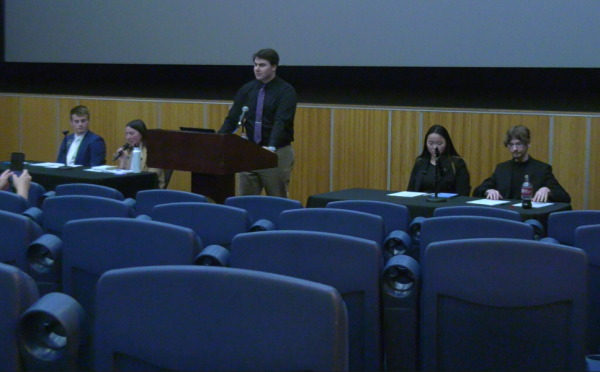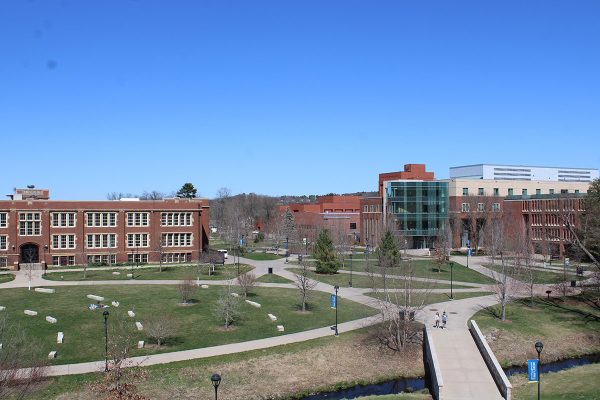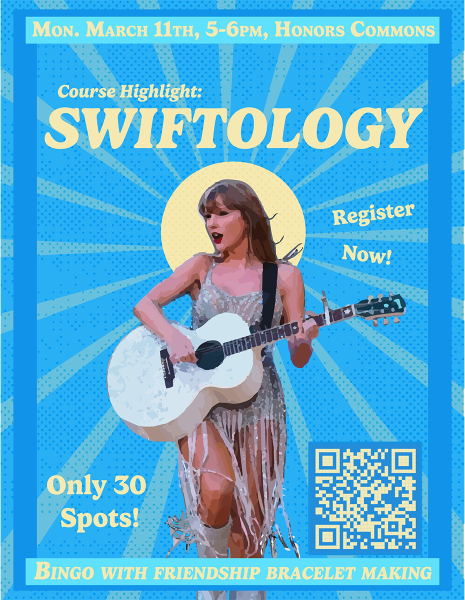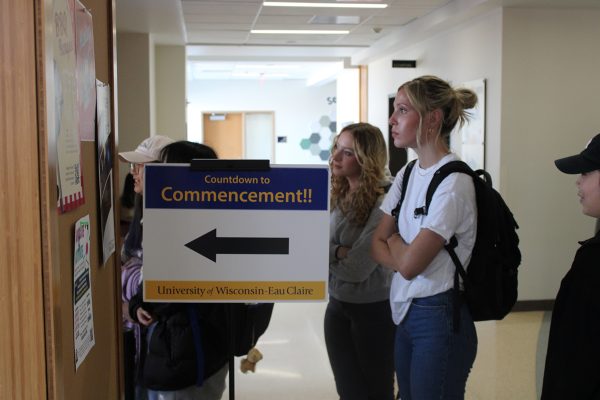Executive order replaces antiquated language with newer, inclusive terms
Words like “handicapped” to be replaced with “disabled”
Photo by Clara Neupert
One example of universal design in action on campus is “curb cuts.” Curb cuts are the sloping edges of sidewalks that replace the traditional 90-degree-angled curbs.
Wisconsin Governor Tony Evers signed an executive order to increase the inclusivity of individuals with disabilities on March 12. The bill directs state agencies to review their administrative rules and replace antiquated, derogatory language with updated terms.
The updated language includes replacing terms like “handicapped” with “disabled.” State agencies have 90 days after the publication of the bill to review and change their documents.
Emelia Holle, a first-year psychology student, said the legislation is impactful because words have power.
“When you have inclusive language that is more okay to say around everyone, it is more welcoming and inviting,” Holle said. “And making sure people know that you are okay with them and you respect them and you want them to be there.”
An act in 2012 deleted offensive phrases from all state statutes. However, the terms remained in the state’s administrative codes — hence the need for the bill.
The original legislation was introduced to the state assembly on Jan. 22. Republican representatives John Jagler, from Watertown, and Scott Fitzgerald, from Juneau, both spoke on behalf of the bill.
“Having a daughter with Down syndrome, I know how hurtful the R-word can be. Removing this phrase from statute in 2012 was a good start, but I believe we can do better,” Jagler said in a press release. “Our administrative code shouldn’t contain terms that would make others not feel included or make them feel like they are not as valuable as their neighbors. Updating the terminology will go a long way into making our state government more respectful of its citizens with disabilities.”
Vicky Thomas, director of UW-Eau Claire’s Services for Students with Disabilities, said updating the language in state documents is a starting point for inclusivity. UW-Eau Claire already utilizes the most current language. Verbiage in brochures, the website and in policies is periodically checked for outdated expressions.
“We want all people to feel included and treated with equity and fairness,” Thomas said.
Thomas said she noticed the legislation fails to mention “person first language.” This language places emphasis on a person instead of their abilities. For example, person first language would replace “an intellectually disabled person” with “a person with an intellectual disability.”
Though the university is up to date with proper wording, Thomas said there are still areas in need of improvement. Using the concept of universal design in everyday life is paramount, Thomas said. Universal design is when a space, environment or product is accessible to everyone, no matter their age, ability or other facets of their identity. Thomas said using universal design benefits everyone.
One example of universal design in action on campus is “curb cuts.” Curb cuts are the sloping edges of sidewalks that replace the traditional 90-degree-angled curbs. Thomas says curb cuts make navigation easier for everyone: people using wheelchairs, folks rolling carts across campus or people who have difficulty stepping up and down stairs.
“So many times,” Thomas said, “the things that we can do to help a person that’s challenged with a disability are similar to things that other people feel challenged by.”
Neupert can be reached at [email protected].

Neupert is a fourth-year journalism student at UW-Eau Claire. She is the executive producer of Engage Eau Claire on Blugold Radio Sunday. In her spare time, Neupert's working on becoming a crossword puzzle expert.











